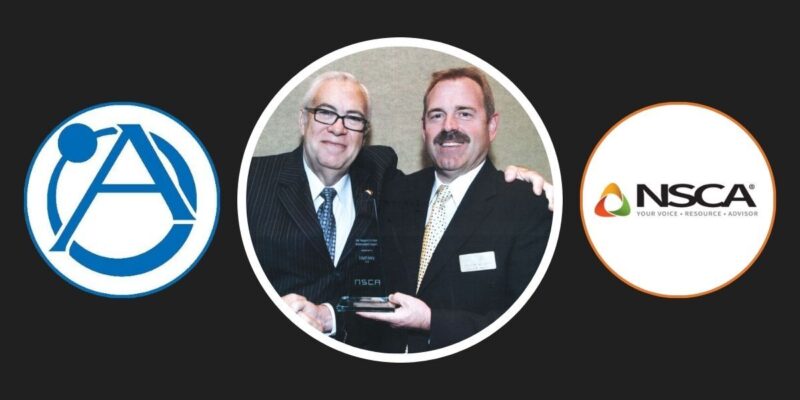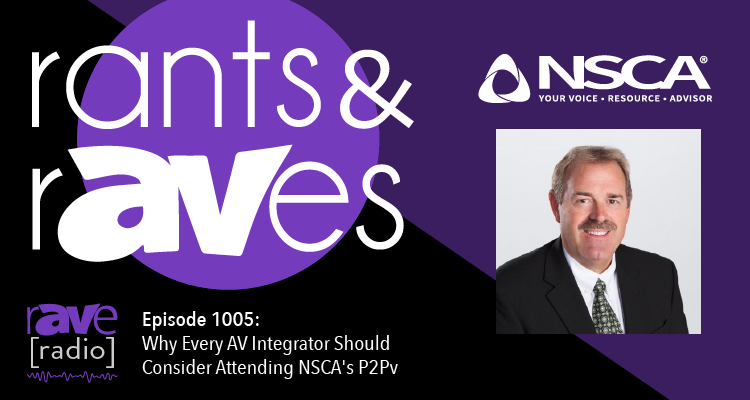100 Things I’ve Learned About Our Industry
 By Chuck Wilson
By Chuck Wilson
Executive Director, NSCA
For my 100th blog post, I thought I would share 100 of the most valuable lessons I’ve learned from my mentors, advisers, business experts and industry leaders, as well as my own experiences over the past several years. Here we go…
- You can never be prepared enough for a natural disaster that interrupts business.
- You can never anticipate the full impact of a losing a business partner and the business continuity challenges it presents.
- If you are married – stay married. If you have a family business – family always comes first. Before you hire family members – call me.
- We have to pay close attention to (and be proactive about) mandates, regulations and taxes that impact small businesses.
- We can’t be reactive or ignorant about labor laws, prevailing wages, occupation classifications, use of contract workers, and associated employment practices.
- Recurring revenue from services is hard to achieve, but is the most valuable business unit for a thriving systems integration business.
- Company culture is everything.
- The bid market has become so competitive that it often generates bad revenue.
- Knowing the true cost of doing business is elusive, but vital.
- We have to separate ourselves from vendors who also sell direct to end-users.
- Integrators have to constantly prove value to clients so that manufacturers view us as the obvious and preferred channel partners.
- Very seldom do we forget equipment on jobs anymore… but the labor and associated expenses? We still underestimate those.
- Talent management is the best thing a CEO can do for his or her company. It’s hard to make the transition from being the talent to being the talent scout.
- Having a project manager who can manage resources and multiple projects effectively is likely your most valued employee.
- Network integration, plug-and-play, IT influence and the cloud aren’t going away.
- Millennial employees will drive you crazy if you don’t understand what is important to them.
- IT-savvy employees are bound to move on if we don’t challenge and reward them.
- Showing gratitude has become the new relationship selling.
- You have to carefully read the contracts you are signing, understand software licensing provisions, and know contract law fundamentals and ramifications.
- The front end of a project manual is just as important as the individual sections that define your scope and work results.
- Someone on your senior management team has to be responsible for contract administration.
- Customer expectations have increased dramatically, and as a whole we haven’t stepped up our game accordingly.
- Technicians often make lousy trainers and project managers.
- We give away far too many things that we should be charging for.
- We have to train our people to think like owners in order for them to make the right decisions.
- Closing out a project effectively and profitably requires a standardized process in commissioning and documentation.
- Small change orders can actually hurt us if we allow the construction managers or GCs to extend the project closeout date, payment cycles, or warranty start date.
- We have to think and act like contractors and abide by all laws, codes, and requirements once we step foot on the jobsite.
- Scope creep is a huge profit killer and a waste of precious time.
- Improving your knowledge of key clients’ business concerns creates stickiness and allows you to deliver value relative to the total cost of ownership rather than just selling them hardware.
- There are predictable and correctable “profit killers” on every job. Most stem from a lack of communications and unproven methods within your own company.
- Attracting and retaining the right people for your business, building the right workforce, and knowing when to hire and when to outsource should be top priorities.
- Code-compliance issues are often overlooked and very expensive to correct after the fact.
- We can profit from introducing disruptive technologies into our markets before the customer learns about it from the competition.
- Independent rep firms are far more influential than you might think.
- You should be in lockstep with your key vendor partners.
- Eroding margins have forced integrators to become reacquainted with the cost of production.
- You can increase capacity and productivity by identifying the bottlenecks and building strength on either side of that bottleneck.
- Digital marketing and use of social media can be a smart way to increase customer engagement and learn about new opportunities.
- You have to carefully manage (and have a policy governing) your employees’ use of social media as a reputation management tool.
- Most integrators need to understand their intellectual property rights and protect them from walking out the door when key employees quit.
- Effective leadership is hard and time-consuming.
- Loyalty has changed, key people will eventually leave, and you need to identify future leaders from within.
- The most effective management teams have multiple generations represented.
- Keeping a healthy balance of work and personal time is very important.
- Salespeople have to bring clients something new and important on each visit.
- Every business owner has a blind spot created by his or her own denial of what they just don’t want to deal with.
- You can make real money and build equity regardless of the size of your company.
- It can be just as hard to change directions in an existing company as it would be to rebrand and start fresh.
- You have to encourage hard work, but only pay for results.
- Most business owners struggle to be good partners on joint-venture projects.
- Execution is probably our weakest business characteristic.
- We don’t spend nearly enough time on developing a long-range strategic plan.
- Holding each other accountable and eliminating repeat mistakes is not a well- documented process in most companies.
- You can learn a lot about your company by talking to your best customers and frontline employees.
- If you can imagine the company that could put yours out of business, you should learn what that transformation process would require.
- If you don’t feel motivated to do your current job, let someone know before you get fired.
- For business owners, it’s far more important to be engaged and involved than just to be present and on time.
- Every big reward will require some level of risk.
- Employees can sense when a business owner no longer has passion for the company.
- We should do more in our communities and extend our time and expertise in areas to help those less fortunate.
- You can learn a lot by just walking around and asking the right questions.
- Every now and again, we should step back and put ourselves in our employees’ positions. Take time to understand their situations and envision living their lifestyles.
- The way we measure success changes as we get older.
- It is possible to be very successful and still be a nice person.
- Every company needs a method for getting new ideas from the frontline people to the boardroom.
- Sometimes we know what we need to do to be more effective leaders, yet we don’t find the time or energy to make that change.
- Most of us hate change, but we know we have to adapt to the new business rules.
- We have to listen to everyone – not just the loudest people – in our companies.
- There are some customers we just can’t afford to do business with any longer.
- Our largest customer may be our worst customer.
- We have to learn how to measure the customer experience better to know if our key clients would really recommend us to others.
- Business owners need to make sure that every employee is contributing in a positive way and making progress toward a goal.
- There are several things we should just stop doing – and most of us already know what they are.
- We have to quit saying we have the best service if we can’t prove it in some viable and measurable fashion.
- By trying hard to prove we are right about something, we end up hurting innocent people or our own business.
- No amount of company success is worth losing your family.
- Sometimes we have no idea how difficult we are to work with and the barriers we needlessly introduce.
- For every new policy you put in place, you should eliminate two obsolete ones.
- Being in the “sweet spot” is when you know exactly which size works best for your company and offers the most profit, and then manage according to that.
- Every so often, we have to remember why we started our companies; go back and read our mission statement, values, ethics, and goals.
- Business expertise has become more critical than having adequate technical skills.
- When a conflict occurs between the customer and your employee, you need to make sure you know the real facts before taking action.
- The real magic happens when our customers can show us new things they’ve learned to do using the systems we’ve installed.
- Overly competitive bidding has led to us undervaluing ourselves – and vice versa.
- Rely on your gut, but validate through outside trusted advisors.
- You need someone managing cash flow, scheduling projects, and monitoring labor utilization every day.
- Most often your competition has won the project by out-executing you, not by buying products cheaper.
- You have to keep both your emotions and your ego in check on bid day, and rely on knowing exactly what your minimum mark is.
- It doesn’t hurt to ask for down payments, better terms, modified schedules, advice, guidance, or moral support when facing tough times.
- Lean thinking and efficiencies should be incorporated in both good and bad times.
- Profitability is essential in order to have sustainable revenue growth.
- Measure your company success by tracking employee retention and profits, not by amount of revenue and number of employees.
- You can’t force employee engagement, but you can create a culture by which it will happen organically.
- Managing risk has become a big concern. If left unattended, far more risk than we ever bargained for will soon get dumped in our laps.
- It can take four or five jobs at normal margins to make up for one really bad job.
- Top executives: Don’t let collections, project disputes, vendor issues, or HR problems keep you from interacting with the best customers.
- Convey your mission and values in all you do.
- Experience being a mentor and show appreciation for your mentors.
- We must be grateful and thank those around us for their efforts. I’ve learned that it’s just as exciting to help others be successful as it to be successful. I’ve learned that there are hundreds and hundreds of really great people in our industry – and I found that out by just getting to know them better. I’ve learned that we can always do more.





